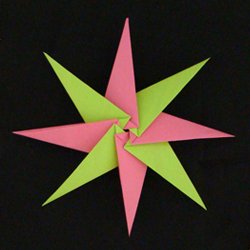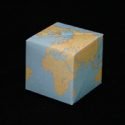Health Benefits of Origami
Health benefits of origami: Why do people fold paper into little animal shapes? For most, it is because it’s fun and it looks nice. But for others, it is a way to relax; a way to let the day’s tension melt away. More and more now, care providers and researchers have found that folding paper can help those with medical conditions.
The most obvious benefit of origami is for those who have had surgery or injuries of the hands. Origami helps patients regain control over their hand movements and helps build muscles. Patients find doing their “hand exercise” through origami is more rewarding than traditional physical therapy methods.

Some therapists have found that origami helps those with low self esteem, anxiety, ADHD, autism, intellectual disability, and other psychological conditions. People who have been diagnosed with depression have found that origami gives them hope. You can read some stories here and Voice of America article here. Similarly, those who have an addiction may find that origami gives them a focal point on which to apply their energies as seen in this article.

Interestingly, volunteers have taught origami to prison inmates. The act of folding paper allows some of the inmates to decrease their level of anxiety. Some prison inmates fold origami models to give to their wives or girlfriends. What better way to encourage a healthful mindset? See more from this NY Times article and this blog. Prison inmates from Utah fold 1000 paper cranes, some of which had wishes written on the crane’s wings (significance of 1000 cranes).

John Smith has a list of articles relating to the educational & theraputic benefits of origami. The Proceedings from COET91 has noteworthy information (see table of contents by Tom Hull) purchase book
Perhaps, the best way to understand the benefits of origami is to read the testimonials of those who use origami as a tool for therapy. See the web sites of Marilyn Abbmackdes and George Ho for extensive information on the health benefits of origami which includes first-hand testimonials of how origami helped their mental health.

– go to Site map
– let’s start folding!
– go to top of health benefits page
The Origami Resource Center is grateful for the community for sharing their expertise in this area of the craft. This web site is not intended as professional advice. If you have a medical condition or know someone who needs medical help, please seek professional advice. Origami is not considered a treatment in itself.




















